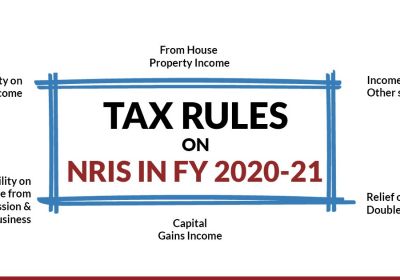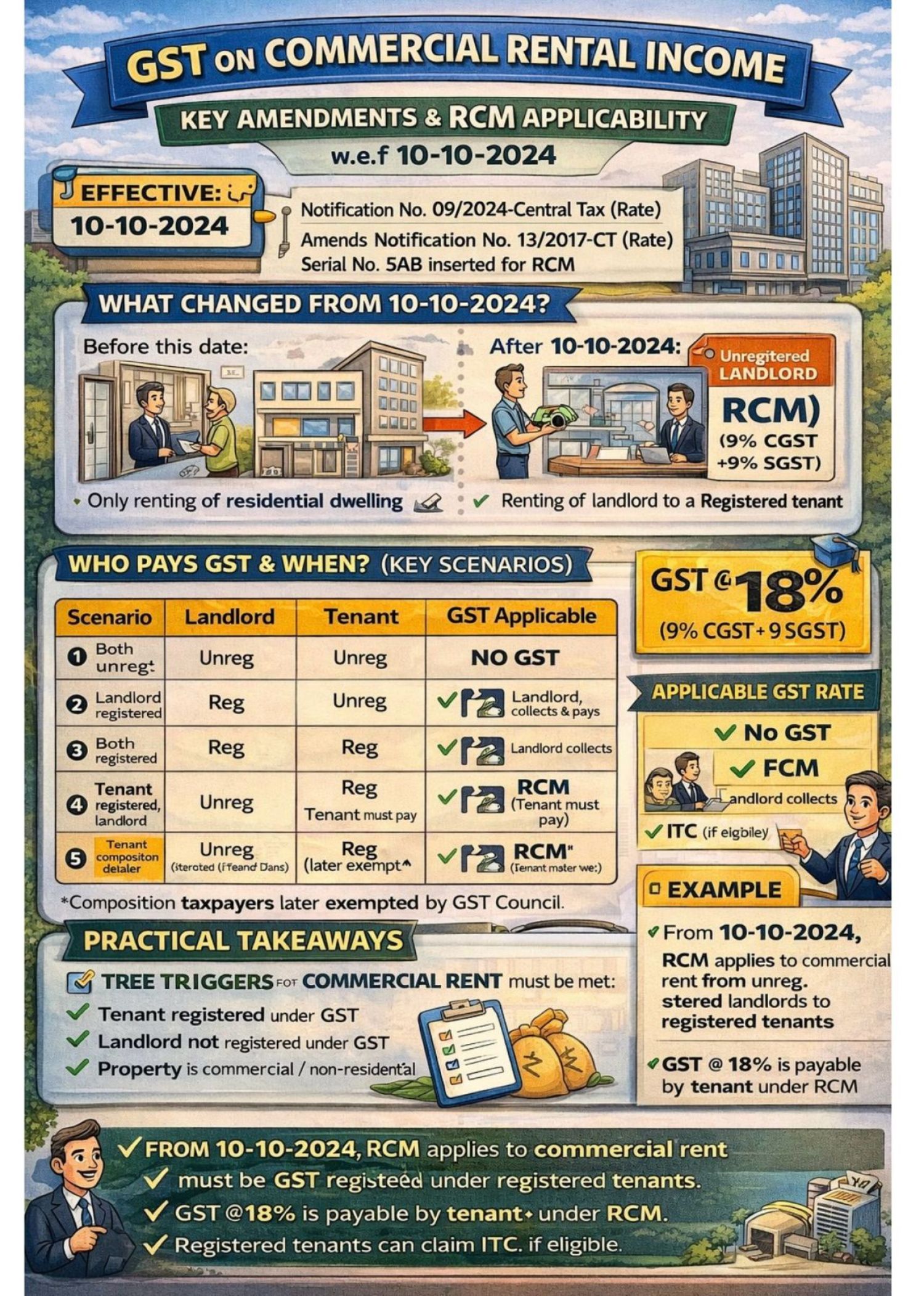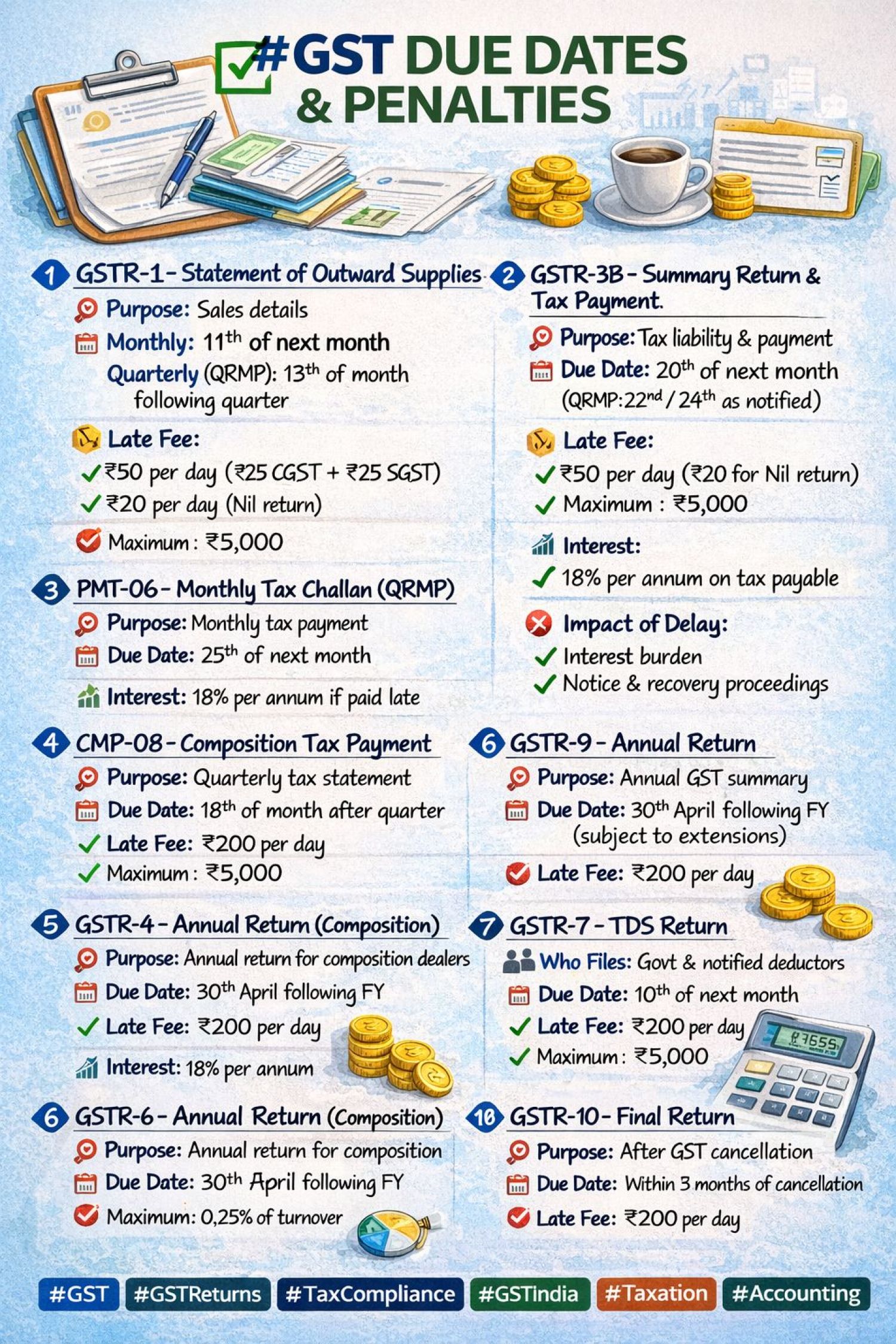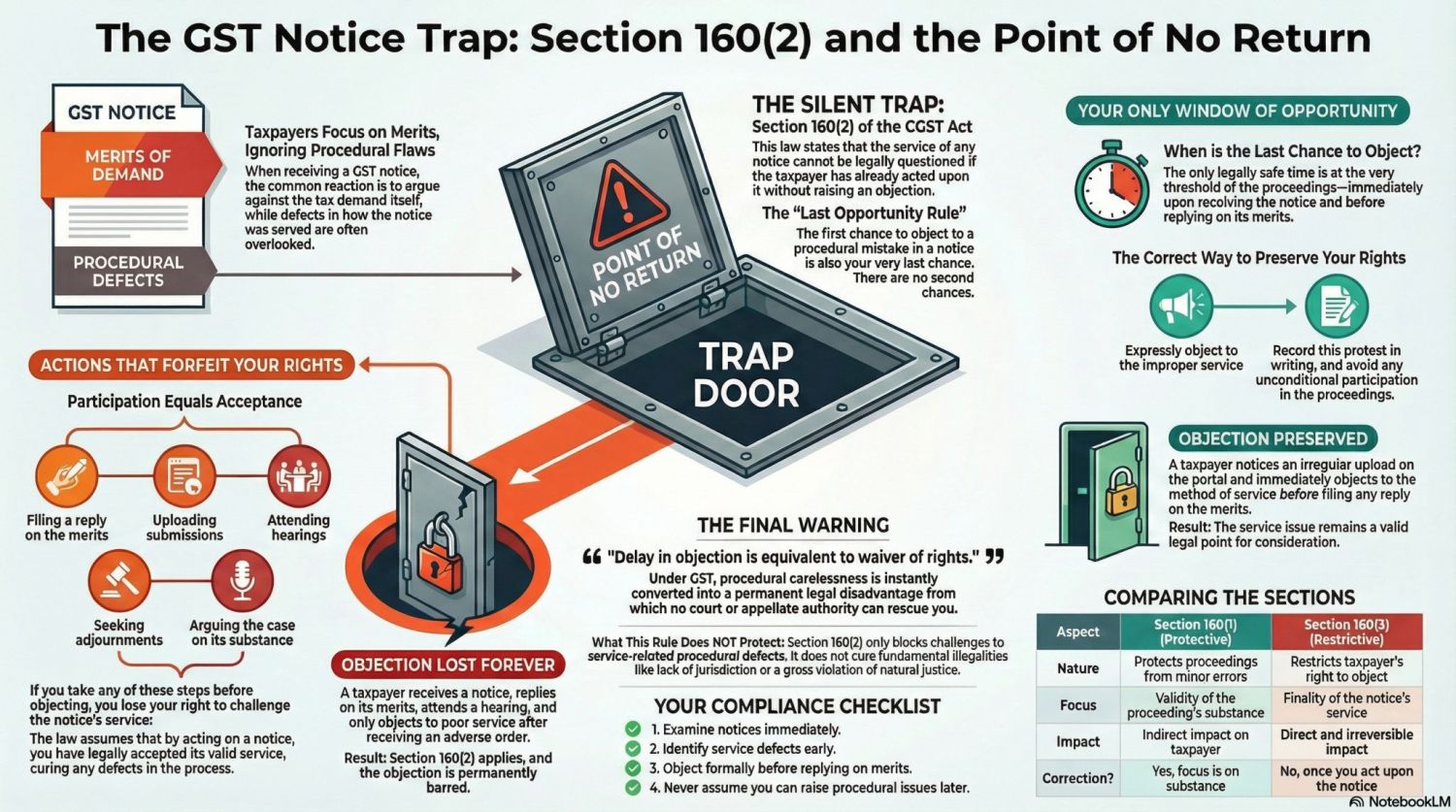Table of Contents

TAX GUIDELINES FOR NON-RESIDENT INDIAN (NRI)
This article provides detailed information on various tax compliances, required by a Non-resident in India. Starting with the basic information and then going to some technical aspects are the key of this article.
BASICS
1. RESIDENTIAL STATUS OF NRI
An individual is said to be a resident of India if he/she fulfils the following condition –
- Has stayed in India for at least 182 days, during the previous year
Or
- Has stayed in India for at least 60 days, during the previous year AND has stayed in India at least 365 days, during four years preceding the relevant previous year.
NOTE – The condition prescribed for an individual to be termed as a resident in India, shall not apply to any Indian citizen working abroad or a crew member of Indian Ship and also to PIO visiting in India.
Decreased period of One hundred twenty days shall apply, only in the cases where the Gross total Indian income (i.e., income accruing in India) of such visiting person who is individuals during the FY is more than INR 15,00,000/-. A visiting Non-Resident Indian's whose Gross income (which is defined as taxable income of person) in India is up to INR 15,00,000/-during the FY will continue to remain Non-Resident Indian's if the stay in India does not exceed one hundred and eighty-one days, as was the case earlier stated
2. NRI INCOME TAXABLE IN INDIA
So much emphasis is given to determining the residential status of a person because such residential status is the main basis for determining the Income Tax liability in India. An individual, being a resident of India, shall be liable to pay tax on income earned on a global level i.e., all their income whether earned in India or outside India, will be taxed in India. On the other hand, an NRI is required to pay tax only on income earned in India or income which accrue or is deemed to accrue in India. Some examples of NRI taxable income could be -
- Any amount received as salary in India.
- Any amount received as income for providing service in India.
- Any sought of income in form or rent from any property situated in India.
- Amount of capital gain arising from the sale of any asset/property, situated in India.
- Income in the form of interest received, on deposits held in Indian bank accounts.
- Interest income from savings bank account.
Thus, we can very well see that income that is earned outside India is not taxable income in India. And even if interest is on an NRE account and FCNR account, the same is also not taxable in India. But interest income from NRO accounts is taxable in India.
3. ITR FILING FOR NRI
Just like residents of India, NRIs who earn income in India exceeding the minimum income exempt from tax i.e.RS. 2,50,000 in a Financial Year, are liable to file their Income Tax Return on the Income Tax Portal, within the prescribed due date.
USES OF FILING ITR
An NRI is benefited from various advantages, where they file their annual return in a proper and timely manner. Benefits for NRI in filing ITR are –
- FASTER PROCESSING OF REFUND – In case the amount of tax paid is less than the actual tax liability, the IT department issues a refund for the same. In case the ITR is filed within the prescribed time, the refund gets transferred to the linked bank account easily.
- MEANS OF KNOWING THE STATUS - Due to International Agreements, Income Tax Department has access to a lot of information, and due to the unavailability of information about the status of NRIs, PIOs etc, they send notices to NRIs, PIOs seeking various information about foreign transactions (e.g., Remittance from India to Abroad). Thus, ITR filing can help them in figuring out the residential status and other requisite information automatically.
- MEANS OF ACKNOWLEDGMENT IN VARIOUS ASPECTS - NRIs, PIOs can show the acknowledgement of ITR submission as a requisite or alternative document at various places. It serves as a legal and government document for various purposes.
- TRACKING BY IT DEPARTMENT – Continuous ITR filing helps the IT department to keep a track record of the NRI. NRIs, PIOs can keep themselves updated with all Income Tax Updates if they keep filing their ITR regularly. It plugs all kinds of harsh notices etc also from the Income Tax Department.
- CARRY FORWARD OF LOSSES – where an NRI undertakes any transaction in which they incur losses, then filing of ITR will allow them to carry forward that loss to set it off against any future capital gain.
- REMITTANCES TO ABROAD - NRIs PIOs do approach banks for remittance of their NRO account money to outside India, and banks require them for Form 15CA, 15CB. To obtain the forms, the CA asks for ITR filing records to get the Form 15CA and 15CB verified and submitted expeditiously and conveniently.
- LOWER TDS CERTIFICATE – As discussed earlier, an NRI can apply to the IT department for obtaining a Lower TDS Certificate in order to avoid TDS deduction at the higher rate. In order to obtain the same, ITR records of the last 2-3 years help them for early processing of their lower TDS application.
- MEANS OF COMMUNICATION OF FINANCIAL TRANSACTIONS - ITR Filing also helps in communicating to the IT Department about the taxable component of a financial transaction in India
- LOOKING FOR BORROWINGS AND CREDIT CARD IN INDIA – Where an NRI looks for any loan or credit card application, an ITR copy is a prerequisite.
- EASE INCOMING INDIA AGAIN – once NRI leaves India, their records are thoroughly verified when they return to India again. ITR filing can be very helpful, productive and beneficial as it will keep their Tax Status maintained, and on coming back to India they will have a continuous record of their tax filings etc with the Income Tax Department.
DUE DATE FOR ITR FILING
- Just like resident individuals, NRI's are also required to file their ITR in the prescribed form, on and before 31st July 31st, coming after the end of the relevant FY.
- Also, the advance tax liability is applicable on NRIs. Thus, where the tax liability exceeds Rs. 10,000 in any of the FY, they are required to pay advance tax. In case of default, they shall be liable to pay the required interest to be paid, as prescribed under Section 234B and Section 234C.
4. SOURCE OF TAXABLE INCOME OF NRI
SALARY RECEIVED IN INDIA
As mentioned earlier, salary income is taxable, if received in India. Thus, an NRI who receives a salary in their Indian account is liable to pay tax. Such income is at their specified tax slab limits. Also, any income earned from services provided in India by an NRI is liable to be taxed in India.
HOUSE PROPERTY INCOME
Coming on to the house property, an assessee is liable to pay tax on income received in respect to any property situated in India. Applying the provisions of the Income Tax Act, 1961, we can make out that whether the property is vacant or rented, tax shall be calculated on the deemed income. In the case of NRI, the same provisions apply and they can also claim a 30% standard deduction on house property. Apart from this, they can claim a deduction against principal repayments, for expenses incurred in respect of stamp duty and registration, under section 80C.
Where rent is received by an NRI, the tenant is required to deduct TDS at a rate of 30% and also required to submit Form 15CA through the online portal. In certain specified cases, the Form 15CB may be submitted by a CA which shows the details of payments, TDS rate, and TDS deduction.
It is to be noted that Form 15CA is required to be submitted, where the rental payment exceeds RS. 50,000 (single transaction) and RS. 2,50,000 per financial year.
INCOME FROM OTHER SOURCES
Almost every NRI is required to keep a bank account in India, either as an NRO Account an NRE Account. Thus, the interest earned from these deposits is taxable in the hand of the concerned holder and TDS is also deducted thereon. However, it is to be noted that interest income from NRE accounts is exempt from tax. NRIs are required to report Interest income from both types of accounts i.e., NRO as well NRE in the ITR form.
INCOME FROM CAPITAL GAINS
Any sought of capital gain received on transfer of capital asset situated in India, is liable to tax in India. Such capital assets also include the securities and bonds purchased in India. Where an NRI sells his house property, situated in India, the buyer is under an obligation to deduct TDS at 20%. However, NRI's are also provided with the capital gain exemption under Section 54 and section 54EC.
REDEMPTION OF INSURANCE POLICY
Some NRIs do invest in Insurance policies (ULIPs etc) in India and on the redemption of policy, Insurance companies deduct TDS on the payment of the said amount. NRIs are required to disclose such income to the IT Department via filing an ITR with the exact amount of income element of the Insurance Policy and also claim TDS.
INCOME FROM INVESTMENTS
Investments made by an NRI in India are taxed @ 20%. In case TDS has been deducted from the said income, then no liability for tax arises.
Some investments that can be made in India are -
- Interest received from deposits made with Indian banks.
- Investment in Government dated securities and treasury bills.
- Purchasing of units of mutual funds of domestic companies.
- Purchasing of bonds issued by any PSU in India.
- Investment in Non-convertible debt instruments.
- Banks in India issuing debt capital instruments for investment purposes.
- Shares or stocks of Indian companies under the FDI scheme.
- Investment in Shares and convertible debentures of Indian companies through stock exchange under Portfolio Investment Scheme.
It is to be noted that deductions under Section 80 are not allowed, for making the above investments.
LONG TERM CAPITAL GAIN ON THE ABOVE INVESTMENTS
As we know that NRIs are not provided with deduction under Section 80 for making investments in India, however, in case any long-term capital gain is made on these investments, the same shall be eligible for exemption under Section 115F. such exemption can be availed if the amount of long-term capital gain is used for purchasing the following –
- NSC VI and VII were issued by the Government of India.
- Investment in shares of an Indian company.
- Investment in debentures of an Indian company.
- Securities issued by the Government of India.
- Deposits with banks and other financial institutions.
While reinvesting in the above options, the NRI should ensure that where the amount incurred for purchasing the new asset is less the amount of capital gain, then the amount equal to the purchase price of the new asset shall be exempt and the remaining capital gain be taxable. To avail such exemption, the assessee is required to hold such new asset for a period of at least 3 years, and in case the new asset is transferred or sold before the expiry of 3 years from the purchase then the whole amount of capital gain is exempted at the time of purchase of such asset, shall be added to income in the year of sale/transfer and be liable to tax.
5. DEDUCTION AND EXEMPTIONS UNDER VARIOUS SECTIONS
SECTION 24AB
NRIs can claim deduction @ 30% on the Income from House Property situated in India. And can also claim the number of expenses paid for getting the ownership of such property.
SECTION 54 EC
Such deductions can be claimed, by reinvesting the amount of long-term capital gain made on the sale of certain long term capital assets.
- The amount of gain can be invested in NHAI or REC bonds, subject to a maximum amount of Rs.50 lakhs
- Such an investment can be made within 6 months from the date of sale/transfer of capital asset.
- Such an investment be held for a period of at least 3 years and in case, the same is converted into cash before the expiry of 3 years, the amount of gain exempted earlier be taxable in the year of sale.
SECTION 80C
A very restricted forms of investments can benefit a NRI for claiming a deduction under section 80C. the NRI can make investment in the following options to avail deduction up to Rs 1.5 lakhs –
- Investment in Equity Linked Savings Scheme.
- Investment in Unit Linked Insurance Plan.
- Payment of premium for Life Insurance policy, where the amount of such premium is less than 10% of the sum assured and the policy must be taken on NRI's name or on their spouses’ children.
- Amount of principal repaid on loan for the purchase of house property including stamp duty, registration fees, and other expenses.
- Payment of children’s tuition fee, maximum for 2 children, in any Indian recognized institution for full-time education.
SECTION 80D
A deduction is provided for making payment against health insurance and the amount of deduction is capped at RS. 25000 for self and family and the same is raised to Rs 50000 for senior citizens. Apart from this, a deduction can be claimed for policy taken for parents and the amount of deduction is Rs 50000 if they are senior citizens, otherwise, it is Rs 25000. Included in the above deduction, is a preventive health check-up, up to an amount of Rs.5,000.
SECTION 80E
Such deduction is available on payment of loan taken higher education of self or spouse or children or for any student of whom such NRI is a guardian. There is no ceiling limit on the amount of deduction, but the same is allowed till the earlier of the following
- Maximum 8 years from the first payment of instalment.
- Till the interest is paid on such a loan.
SECTION 80G
Under this section, deductions are allowed against donations made for social causes and to notified institutions by the NRI.
SECTION 80TTA
This deduction is related to income earned from interest on a savings account. The NRI shall be eligible for a deduction up to Rs 10000, provided the interest income accrued from a savings account held with an Indian bank or co-operative society or post office.
More read:Key Provision for NRI Taxation
6. INELIGIBLE DEDUCTIONS
NRIs are restricted or ineligible from claiming deductions under the following sections –
SECTION 80C
- Any sought of investment made in PPFs.
- Investments in NSCs issued by Government of India.
- 5 Year Term Deposit Scheme in Post Office
- Senior Citizen Savings Scheme with Government of India.
SECTION 80CCG
NRI are restricted from claiming a deduction for the amount invested in Rajiv Gandhi Equity Saving Scheme.
SECTION 80DD, 80DDB AND 80Y
No deduction is provided for any sought if expense made in respect of any differently-abled person.
7. PROVISIONS FOR RELIEF UNDER DTAA
To avoid double taxation, NRI's are required to comply with certain procedures to get relief against the Double Tax Avoidance Agreement (DTAA) between the two countries. By complying with DTAA provisions, they would be liable to pay tax in only one country and can avail the credit if same in filing their return in the other country.
The above provision provides two methods -
- EXEMPTION METHOD: under some DTAA agreements, countries try to exempt a person from paying taxes in another country in relation to common taxable income. Thus, under this method, the assessee pays tax only in one country and is exempt in the other country.
- TAX CREDIT METHOD: the other way of providing benefit, is by giving the credit of tax payment in one country, in filing return in another country, thus, the assessee will pay tax in one country, and can claim the credit of the same at the time of filing the return in other country.
















